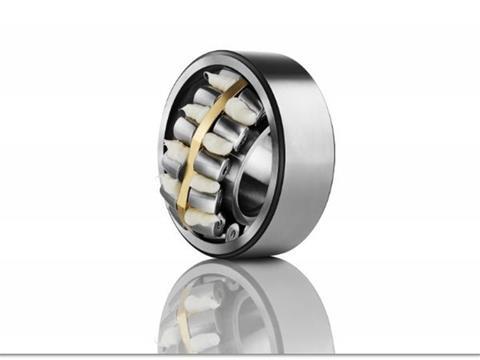
At Anuga FoodTec, ExxonMobil introduced Mobil SHC™ Grease 462 PF, an advanced NSF H1 registered high temperature synthetic lubricant for the food and beverage and packaging sectors. The grease delivers superior bearing protection for corrugator rollers operating at temperatures up to 240°C and in the presence of moisture.
Inken Reuser - EAME Offer Advisor, explains how choosing the right lubricants can help optimise the performance of corrugated machines.
Global demand for corrugated packaging continues to demonstrate strong growth. This is partly down to the expansion of e-commerce and home delivery and partly due to the advantages that corrugated packaging offers both suppliers and retailers over plastic alternatives. Not only is it readily recyclable, it is easy to process and transport. Additionally, some supermarkets are designing corrugated transit packaging that can double up as a point-of-sale display.
Gains, however, are being limited by the mature state of the corrugated industry in developed areas such as the US, Western Europe and Japan, where boxes are essentially commodity items. For corrugators, being able to defend margins and manage manufacturing costs has therefore never been more important.
In order to support sales and protect bottom line performance it is vital that corrugating machines are kept free from unscheduled downtime and avoidable wear. Choosing the right lubricants and associated services can help ensure this, assisting companies to retain and enhance productivity.
Applying the most appropriate oils and greases can help increase the life of equipment, reduce a plant’s energy bills and extend oil drain intervalsThese benefits can help improve equipment reliability and reduce maintenance-related costs. However, in order to achieve these goals it is important that corrugators use high performance lubricants, especially for bearings on heated rollers as the high temperatures can adversely affect the performance of oils and greases.
Optimised equipment usageExxonMobil’s high performance lubricants can help achieve these goals. Their balanced formulation and application-specific design can help corrugators optimise equipment usage and aid in cutting energy consumption, crucial benefits during a period of increased competition and heightened energy bills.
A typical corrugating machine offers a number of lubricant challenges including high temperatures [up to 200 °C] and exposure to steam, which is used during the forming process. There is also the possibility of glue spillage and fibre build-up, along with the presence of metal particles if guide plates, slitter blades or rollers are not properly aligned. Choosing lubricants that can handle these conditions is therefore essential in order to maintain the optimum performance of corrugating machines.
Significantly, a properly lubricated corrugator can be more efficient than one using less effective oils or greases and this can be reflected in its energy usage. Through outstanding traction properties, Mobil SHC™ Cibus Series lubricants have demonstrated the potential to provide significant energy savings — 3.6% in gear applications* and 3.5% in hydraulic applications**. ExxonMobil has also developed Mobil SHC™ Grease 462 PF, an IFANCA Halal and Kosher & Parve certificated and NSF H1 registered synthetic grease for incidental food contact and suitable for use in corrugators. It offers excellent high temperature performance up to 240°C and good wear protection, making it suitable for use in heated rollers.
There are health and safety considerations, too. A well lubricated corrugating machine can be less prone to mechanical outages, which reduces the instances of unplanned maintenance and human machine interactions. The fewer the interactions the less chance there is of an accident.
Machinery health checksOnce the most suitable oils and greases have been selected, a corrugator’s performance and reliability can potentially be improved by implementing a used oil analysis service. By regularly sampling lubricants and subjecting them to laboratory testing it is possible to spot maintenance issues before they become a problem. For example, the presence of contaminants, such as wear metals, can be an indication of under-lubrication, which if left untreated could result in premature bearing failure and associated maintenance costs and downtime. Used oil analysis can also confirm the continued effectiveness of a lubricant, preventing unnecessary and costly oil changes and waste oil disposal.
For a modern, efficient corrugating business it is essential to choose the best possible lubricants in partnership with a used oil analysis service. Taken together these steps can help ensure good machinery operation between scheduled maintenance inspections, reduced energy bills and enhance overall productivity. In an increasingly competitive marketplace these benefits can offer significant financial gains.
More info:













